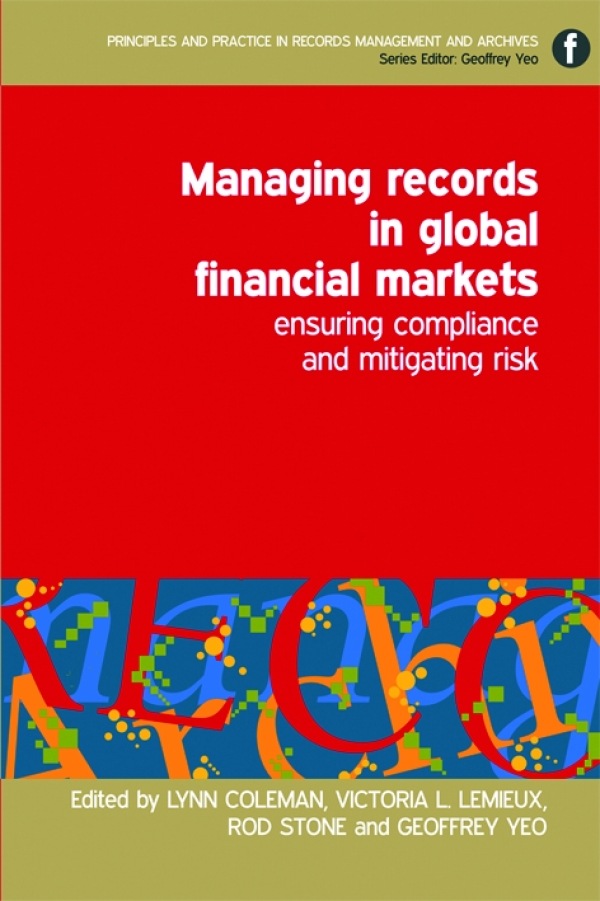Book contents
- Frontmatter
- Contents
- Introduction to the series
- Contributors
- Introduction
- List of abbreviations
- 1 Global financial markets
- Part 1 Regulatory and legal compliance
- 2 Conflicts of laws in multiple jurisdictions
- 3 Impact of the extrajurisdictional reach of the USA
- 4 Moves towards a common regulatory framework for financial services in the European Union
- 5 Data exchange and confidentiality: an Asia Pacific perspective
- 6 Information privacy in the USA
- Part 2 Balancing risk and return
- Part 3 Litigation-related issues
- Part 4 Record-keeping approaches
- Index
2 - Conflicts of laws in multiple jurisdictions
from Part 1 - Regulatory and legal compliance
Published online by Cambridge University Press: 08 June 2018
- Frontmatter
- Contents
- Introduction to the series
- Contributors
- Introduction
- List of abbreviations
- 1 Global financial markets
- Part 1 Regulatory and legal compliance
- 2 Conflicts of laws in multiple jurisdictions
- 3 Impact of the extrajurisdictional reach of the USA
- 4 Moves towards a common regulatory framework for financial services in the European Union
- 5 Data exchange and confidentiality: an Asia Pacific perspective
- 6 Information privacy in the USA
- Part 2 Balancing risk and return
- Part 3 Litigation-related issues
- Part 4 Record-keeping approaches
- Index
Summary
Introduction
This chapter considers the extent to which the fact that different countries have different requirements for the retention or disposal of records creates issues for a financial institution that operates internationally.
The chapter also considers the effect upon international financial institutions of rules requiring the disclosure of records in the context of litigation or regulatory supervision and enforcement. The expressions ‘discovery’ and ‘disclosure’ are used throughout this chapter. Discovery is the term applied in the USA and disclosure is the term applied in England and Wales following changes to the Civil Procedure Rules in 1999.
Financial institutions conducting business internationally will frequently find themselves subject to obligations concerning the production and/or retention of records in which the laws or regulatory requirements of more than one jurisdiction may be relevant. For instance, an obligation on a financial institution situated in jurisdiction A to produce records, where those records are held (whether physically or electronically) in jurisdiction B, potentially engages the legal or regulatory rules of both jurisdictions. Where (as is commonly the case) the relevant rules in the two jurisdictions conflict, a financial institution will find itself obliged to find a way of reconciling these opposing obligations, which may involve obtaining the requisite protection from appropriate courts or regulators.
This chapter will look at the discovery/disclosure rules of certain major jurisdictions in Europe, North America and Asia and how they operate extraterritorially. In this context it will consider the ‘blocking’ statutes of certain jurisdictions, whereby (often supported by criminal law sanctions) the potential extraterritorial effect of other countries’ discovery/disclosure rules are countered by ‘local’ prohibitions on provision of such records. The effect of bank/customer confidentiality will also be considered in the international context.
The chapter will also brief ly review the operation of the Hague Convention, a mechanism by which parties can seek, in civil proceedings in one jurisdiction, records in another jurisdiction relevant to those proceedings. There will then follow a brief consideration of issues arising from the operation of the European Data Protection Directive and, in particular, its effect upon the transfer of personal data out of the European Union (EU) in the context of discovery/disclosure requests.
- Type
- Chapter
- Information
- Managing Records in Global Financial MarketsEnsuring Compliance and Mitigating Risk, pp. 17 - 32Publisher: FacetPrint publication year: 2011

